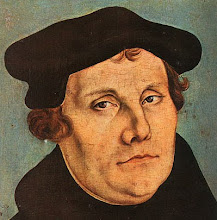A Sower Whose Sowing Saved Millions
by Michael L. Cooper-White, Seminary President
______________________________________
Almost exactly 40 years ago, I first became aware of a modest man whose obituary appeared in newspapers a few days ago. During my freshman year at Gustavus Adolphus College, Norman Borlaug was on the program of one of that institution’s early Nobel conferences. Back then, the enormity of his ultimate influence was only beginning to be recognized. By the time of his death, it is estimated that the “father of the green revolution” may have saved the lives of as many as a billion of his fellow human beings. And all he did was sow and grow some wheat!
A scientist by training, Borlaug’s breakthrough came by breeding new strains of wheat that had shorter stalks, and produced an amazing increase in per-acre yield. Equally, if not more important, was his recognition that farmers—especially so-called “peasant farmers” in “third world” countries—needed a bit of coaxing and coaching to try something new. Country by country, he traveled around the world to introduce new strains of grain, and to demonstrate how production might be increased in order to raise both profits for the growers and food for consumers.
In recognition of Borlaug’s incredible contributions to our planet and its people, he was honored by The Luther Institute a few years ago, receiving one of the prestigious Wittenberg Awards granted to a handful of Lutheran luminaries. Since that time, the Institute has come under the Seminary’s umbrella. So in a certain sense we might say of this saint, whose contributions have saved more lives than that of any other person who has ever lived, “he’s one of us.”
Throughout his lifetime, Norman Borlaug neither sought nor received widespread public acclaim. That’s evident in the fact that as I’ve mentioned his passing among friends and associates in recent days, my comments have been met with blank stares or the expected question, “Norman who?” He worked quietly in laboratories and in the fields, just doing his thing day after day, year by year, decade following decade. He never received a “letter of call” from the Church, yet was not his work of growing seeds and filling hungry stomachs around the globe among the highest and holiest of vocations?
Several of my favorite hymns sing of grain and growth. As I sing them from now on, I’ll think of Norman Borlaug, and give thanks for a simple sower who saved millions.


0 Comments:
Post a Comment
<< Home